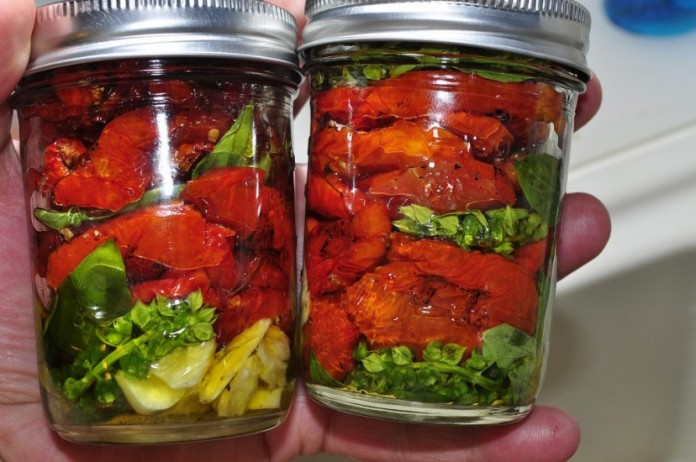You’re probably familiar with the swelling and redness that comes along with a sprain or a cut – that’s your body increasing blood flow to the affected area to supply more white blood cells and nutrients. The process is called “inflammation” and it’s a natural part of your body’s immune system, responding to injury and infection on a limited basis.
However, with increasing evidence linking prolonged inflammation to harmful health risks, many are pursuing anti-inflammatory diets to improve their health.
When Inflammation Is Harmful
Without inflammation to fight viruses, bacteria, and injury, we’d be in big trouble. But sometimes the body’s inflammatory response can cause serious problems, especially if the response is prolonged or throughout the whole body.
Doctors and scientists are continuing to explore some of the links between inflammation and diseases like cardiovascular disease, certain cancers, Alzheimer’s disease, and even depression and mental illness.
Dr. Barry Sears, research scientist and author of the #1 New York Times Bestseller The Zone, explains that you “could feel fine but have high levels of inflammation” in the body – which is why he refers to inflammation as a silent epidemic.
How Your Diet Affects Inflammation
Although you might not think of your diet as affecting your immune system, certain foods have been shown to trigger inflammatory responses, and others have been shown to reduce inflammation.
Unfortunately, the typical diet in the U.S., which contains too many inflammation producing fatty acids and trans fats from processed / fast foods, as well as too much sugar (including lots of white bread and carbs that quickly turn into sugar), is prone to triggering inflammatory responses.
To restore a healthy balance in your body, eliminate those unhealthy foods and replace them with inflammatory-fighting foods. Bonus: Avoiding excessive fat and sugar does more than reduce inflammation; it also helps you lose weight and feel better overall.
Always remember this: excessive body fat cells create inflammation throughout the body.
Anti-Inflammatory Foods

Dr. Frank Hu, professor of nutrition and epidemiology in the Department of Nutrition at the Harvard School of Public Health, suggests a list of inflammatory-fighting foods.
This might not come as a surprise, but most of the foods that have been found to reduce inflammation are part of what is already known to be a healthy, balanced diet. Many of these foods are featured prominently in the heart-healthy Mediterranean diet, which emphasizes fruits, vegetables, seafood, whole grains (I recommend gluten-free), and legumes.
The following foods can help to reduce inflammation:
- Fruits & Vegetables: In particular blueberries, apples, strawberries, oranges and tomatoes. Organic when possible.
- Leafy Greens: Try spinach, kale and collards. They’re high in antioxidants and polyphenols, which are plant-based nutrients that have a variety of health benefits. Again, organic when possible.
- Olive Oil: Reduces inflammation and is a great cooking substitute for saturated oils and butter.
- Nuts: Try almonds and walnuts. Studies have associated nuts with other health benefits, such as reducing the risk of cardiovascular problems and diabetes.
- Fatty Fish: Salmon, mackerel, tuna and sardines all have plenty of healthy omega-3 fatty acids. Many do not consume enough omega-3 fatty acids in proper balance on a daily basis. For this reason, I recommend daily supplementation with Balanced Omega Formula.
Christopher Cannon, MD, associate professor of medicine at Harvard Medical School and a cardiologist at Brigham and Women’s Hospital, Boston, suggests this one day’s worth of meals for anti-inflammatory eating:
“Breakfast of toasted steel-cut oatmeal with berries, yogurt, or other topping and coffee or green tea. Lunch could be tuna salad on 7-grain bread and a smoothie with seasonal fruits. For a snack, try an ounce of dark chocolate and about four walnuts. Dinner could be spaghetti with turkey meat sauce, spinach salad with oranges and walnuts, and apple cranberry pie made without butter.”
Dr. Cannon makes some very good recommendations. Gluten-free pasta and bread is a better choice, in my opinion. Due to popular demand, there are more choices than ever before!
The anti-inflammatory movement is full of evidence that a diet of whole, unprocessed foods will help you feel better and reduce your chances of getting sick.
If you need to rapidly reduce inflammation, I invite you to read the research behind Inflamments, a natural blend of anti-inflammatory herbs and extracts. These herbs and extracts have been used for centuries by many cultures throughout the world. They have been brought together in one professional grade, ultra pure product for your convenience.
—
Photo credits:








